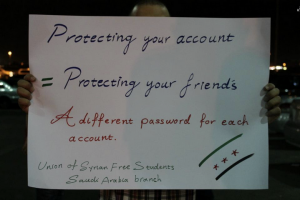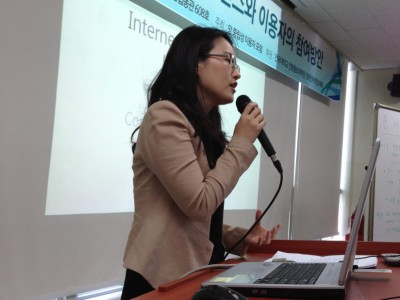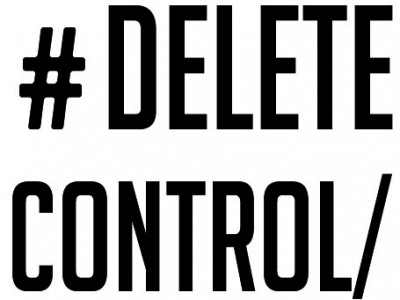Stories about Feature from January, 2013
Netizen Report: Great Firewall Edition
This week's Netizen Report begins in China, where netizens have faced greater censorship challenges since the beginning of the new year. From there, we move to Tajikistan, where authorities have removed a ban on a number of websites including Facebook and Radio Ozodi. Then, we move to Pakistan, Iran and beyond.
International Privacy Day: Anti-Surveillance Success Stories
January 28 marked International Privacy Day. Different countries celebrated this day calling attention to their own events and campaigns. This year, EFF is honoring the day by sharing some advocacy strategies utilized by human rights advocates and activists from Argentina, the UK, Canada, and the United States, that have helped to defeat overreaching surveillance proposals that threaten civil liberties.
Understanding Free and Open Source Software
We received an email from Richard M. Stallman (RMS), after publishing an article about the Egyptian demonstration calling for the government to adopt Free Software. Tarek Amr digs deeper into open source software and arguments in its favor in this first post of a two-part series.
Zambia: Foreign Minister's Phone Tapped
Zambia's Foreign Minister, Given Lubinda, is under pressure to resign from the ruling Patriotic Front party. He is accused by the party's disciplinary committee of leaking information to online publications. The accusation is based on evidence that was allegedly gathered by wiretapping the minister's phone.
Video Advocacy Races Forward: 2012’s Dangers & 2013’s Solutions
Video is increasingly at the nexus of opportunity and danger for human rights activists. Video helps activists to document, confront, circumvent, and lobby against oppressive authorities—but it also allows those authorities to stalk them. Here's what we think will happen in 2013.
Netizen Report: Game Over Edition
This week's Netizen Report begins in South Korea, where new legislation would make it illegal for juveniles to play online games after 10 pm. Then, we move to Tajikstan, which has blocked news outlets and social networking sites in advance of upcoming elections. From there, we move to Oman, Bangladesh, and beyond.
Resources: Guide to Creating Facebook Pages with Impact
It's no small task for small organizations and activists to put together a strategic Facebook page, and navigating around Facebook's setup pages can be confusing. Originally published in Arabic, Social Media Exchange (SMEX) just released the English version of their booklet Creating Facebook Pages with Impact. Breaking down how to use Facebook pages for activists, it addresses both technical aspects and management strategies.
South Korea: How to Regain Ownership of the Internet
On January 11, 2012, Network Neutrality Forum, an alliance of South Korean Internet freedom-concerned civic organizations, hosted a public workshop to discuss ways to increase civic participation in global Internet governance. Our author Jae Yeon Kim participated in the meeting and has this report.
Nigeria: Tweep Detained For Taking Photographs
The Nigerian blogosphere was thrown into panic due to the arrest of Eggheader Odewole (@eggheader) for taking photographs of a windmill under construction in Kastina, Northern Nigeria.
Kuwaiti Twitter User Jailed for Two Years for Insulting Emir
Kuwait slapped a two year prison sentence to yet another Twitter user for using the microblogging site to insult its ruler. Netizens react.
#DELETECONTROL/: Campaign Against Digital Repression
The Humanist Institute for Cooperation, Hivos, in partnership with Global Voices Advocacy, Witness, Mideast Youth and Tactical Technology Collective, are launching #DELETECONTROL/, a campaign to help threatened netizens fight against digital repression.
China: Google's Quiet Withdrawal of Censorship Warning Raises Questions
Google has quietly removed a feature that used to inform users from mainland China of censored keywords. Is this---as some speculate---a move by Google to please Beijing in an attempt to reenter the Chinese market?
Venezuela: Home of Twitter User Raided
The home of Twitter user Federico Medina Ravell, who's allegedly behind the account @LucioQuincioC, was raided on Sunday, January 6, by Venezuelan intelligence officers. The micro-blogger is suspected of spreading rumors about the health of Mr Hugo Chávez.
China: Sina Weibo Manager Discloses Internal Censorship Practices
One Sina Weibo manager , frustrated by the pressure from the Propaganda Department imposed upon him and his colleagues, forcing them to censor a controversial editorial, writes an inside story to explain his difficult position.
Zambia: Minister Threatens Editors of Online Watchdog with Treason Charge
A Zambian government minister has allegedly threatened to arrest the editors of the online citizen media newspaper, Zambian Watchdog. The minister is also said to have threatened to charge the editors with treason, a capital crime in Zambia, punishable by death.
South Korea: Perspectives on Chinese New Net Control Laws
On December 28, 2012, the Chinese government approved a set of new net control laws that would make it compulsory for internet intermediaries to enforce users' real name registration. In South Korea, a similar online real name registration policy has been in place since 2005. Let's examine the South Korean experiment and see what lessons Chinese netizens can learn from it.
















